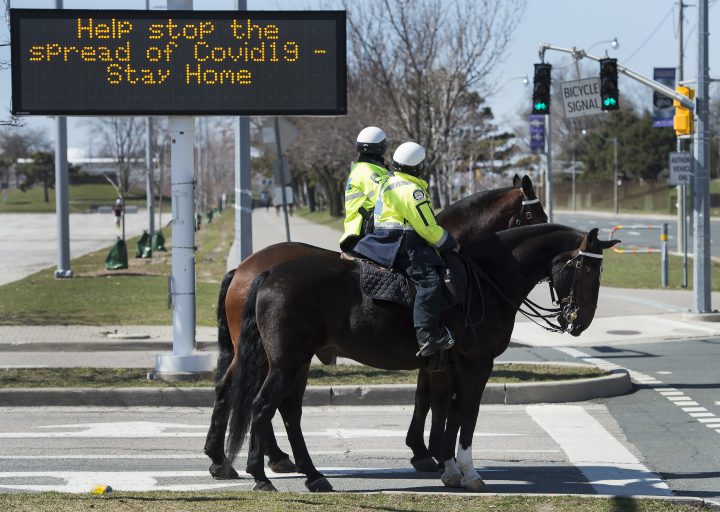A civil liberties group is raising concerns as Ontario police officers now have access to the IDs of those who have tested positive for the novel coronavirus.

The data was made available to first responders as part of emergency measures during the pandemic.
“We appreciate that first responders are on the front lines of a public health crisis. Protecting the health of communities and first responders is rightly a priority,” a letter to Solicitor General Sylvia Jones read.
“Providing personal health information directly to law enforcement, however, is an extraordinary invasion of privacy.”
The letter was written on behalf of the Canadian Civil Liberties Association, the HIV & AIDS Legal Clinic Ontario, the Black Legal Action Centre and Aboriginal Legal Services.
The provincial government announced the new measures on April 6.
“The information disclosed will be limited to an individual’s name, address, date of birth, and whether the individual has had a positive COVID-19 test result,” a news release read.
“Strict protocols will be enforced to limit access to this information and will only be used to allow first responders to take appropriate safety precautions to protect themselves and the communities they serve.”
- Fourth complainant set to testify at sex assault trial of businessman Frank Stronach
- Ford government faces ‘save OSAP’ campaign to reverse student loan changes
- School bus carrying 40 students crashes in Ontario town, 4 sent to hospital
- Ontarians without a family doctor at higher risk of death, study finds
The government said once the emergency order is lifted, the information will no longer be accessible.
Privacy experts raised concerns about the order shortly after the announcement was made.

Get weekly health news
In the letter sent to Jones, dated Thursday, the groups ask several questions with regards to oversight, privacy protection and practical use of the data.
The letter also states that first responders could get a “false sense of security” as some people who have COVID-19 may not have been tested.
“Police officers, like all first responders, must operate under the assumption that everyone they come into contact with is a potential active carrier,” it said.
Further, the letter asks, “How will the COVID-19 diagnosis be used by first responders in the execution of their duties? In particular, what additional precautions is it anticipated that police and firefighters will take upon receipt of the information?”
When asked about the letter, Stephen Warner, a spokesperson for the solicitor general’s office, said “strict protocols” are being enforced to limit access to the information so that it’s only used to allow first responders “to take appropriate safety precautions to protect themselves and the communities they serve.”
“During this outbreak, it is imperative that our first responders have access to this essential information when they are preparing to respond to an emergency in order to protect themselves and stop the spread of COVID-19,” Warner said.
“We will continue to do everything in our power to ensure the health and well-being of those working on the front lines keeping Ontarians safe.”















Comments
Want to discuss? Please read our Commenting Policy first.